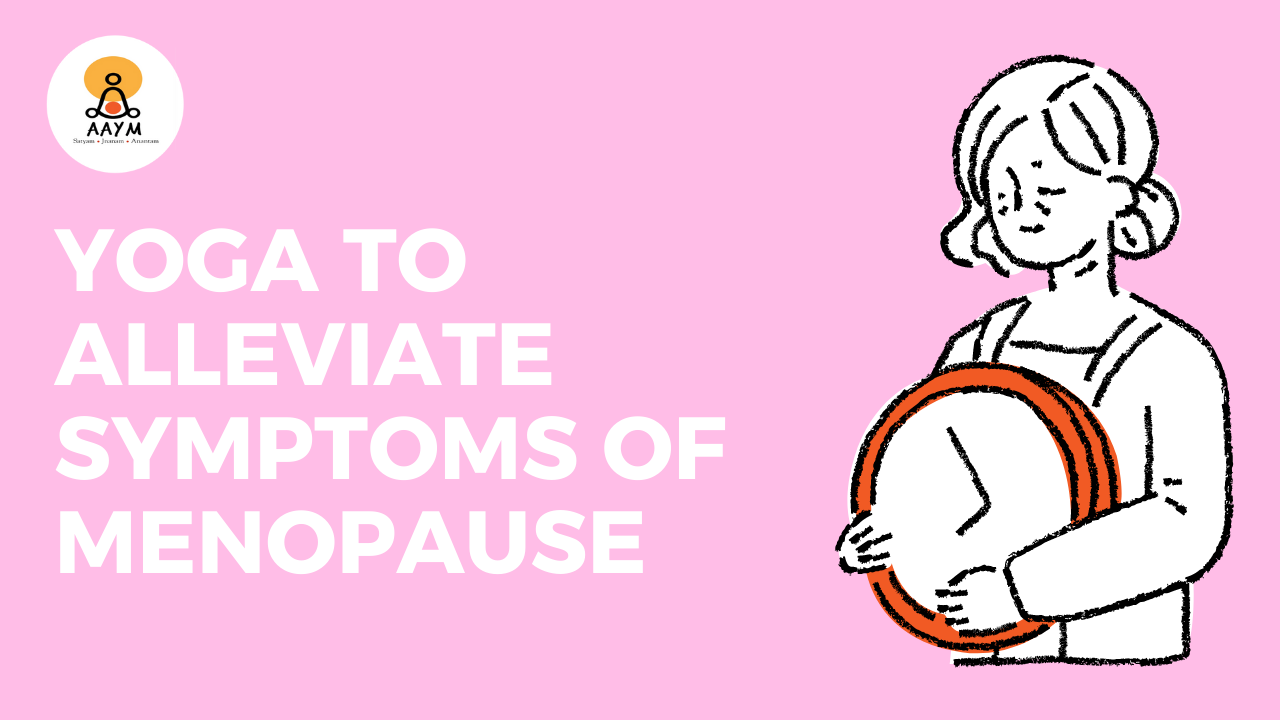INTRODUCTION
Menopause is defined as the permanent cessation of menstruation, resulting from a progressive reduction in estrogen and ovarian function levels. Women typically experience menopause after 12 consecutive months without menstruation, with the average age being 50 years. This significant transition in a woman’s life brings along a range of distressing symptoms that can last for several years. These symptoms include hot flashes, night sweats, insomnia, depression, anxiety, cognitive disturbances, and reduced quality of life. Menopause also increases cardiovascular risk and commonly leads to osteoporosis in women. While hormone replacement therapy is a traditional treatment option, it’s essential to discuss its potential side effects with a licensed practitioner. Given that menopause encompasses both physiological and psychological changes, therapies addressing both aspects are preferable. Complementary therapies like Yoga, physical exercise, acupuncture, and massage therapy have proven beneficial in improving sleep quality, mental health, and overall wellness during menopause. This blog delves into how Yoga can be a supportive tool during this pivotal phase in a woman’s life.
ROLE OF YOGA IN MENOPAUSE
Yoga, an ancient Indian philosophy, has long been celebrated for promoting physical, mental, and emotional wellness. The three primary practices in Yoga are physical postures (asanas), breathing exercises (pranayama), and meditation (dhyana). Given that stress often exacerbates menopausal symptoms, these mind-body practices can be invaluable in reducing stress and enhancing mood and overall well-being. Research has shown that Yoga can also diminish the severity of hot flashes and night sweats. The objective is to meld mental concentration with physical postures and exercises. For further insights, you can refer to studies on this topic here and here.
ASANAS
An Asana is more than just a mechanical posture. It’s a deliberate process that culminates in a balance between movement and resistance, resulting in steady and comfortable positions. Asanas offer physical activity, bolstered strength, and elevated energy levels, which can counteract post-menopausal weight gain. It’s crucial to tailor yogic exercises and poses to your fitness level. Start with basic Yoga postures to familiarize yourself with what feels best for your body. Once comfortable, you can progress to either a gentle or more rigorous routine.
Some recommended asanas for alleviating menopausal symptoms include:
Dandasana (Staff pose)
Upavista Konasana (Seated wide-angle pose)
Baddhakonasana (Fixed angle pose)
Supta Baddhakonasana (Reclining fixed angle pose)
Virasana (Hero pose)
Supta Virasana (Reclining hero pose)
For detailed techniques of these poses, refer to ‘YOGA: The Path To Holistic Health’ by B.K.S. Iyengar. Additionally, a case series discussing the impact of yoga on menopausal symptoms among women practicing Iyengar yoga can be found here.
PRANAYAMA
Controlled breathing exercises, or pranayama, transcend mere inhalation and exhalation cycles. They bridge our physiological and spiritual realms. Integrating pranayama into your daily routine can foster deeper relaxation, mitigate anxiety, and nurture positive thinking. Practices like Anuloma Viloma (Alternate nostril breathing), Viloma Pranayama (Interrupted breathing cycle), Diaphragmatic breathing, and Kapalabhati can be particularly beneficial for menopausal symptoms.
DHYANA
Meditation, or dhyana, serves as a tool to calm the mind by focusing attention on a single object, sound, concept, or experience. This practice enables us to momentarily disconnect from the daily stresses and responsibilities that often preoccupy our thoughts. Such a respite is especially vital during menopause. Techniques like Body Scan, Calm Abiding Meditation, Mantra Meditation, and White Tara Meditation can be particularly helpful. Evening meditation can notably enhance sleep quality, promoting restful nights.
CONCLUSION
Menopause can usher in a tumultuous period for many women. However, studies have shown that Yoga can have a positive impact on the psychophysiological shifts observed in post-menopausal women. Incorporating these exercises into your daily routine can alleviate menopausal symptoms, reduce stress, and combat depression. When combined with meditation, Yoga emerges as a promising complementary therapy to mitigate menopausal symptoms and elevate the quality of life.

